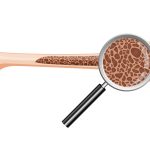Discover how drinking alcohol shapes your health, including some effects you might not expect
Most of us know alcohol can harm the liver, but the full story is far more significant. Alcohol can impact everything from your brain to your immune system. Remember, alcohol, while socially acceptable, can lead down a dark side of addiction and health issues. Your liver bears the brunt of excessive drinking, and you could end up seriously ill. Be responsible.
The path to alcohol addiction
It sounds logical, but one of the concerning things about alcohol addiction is that you may not even “feel” or “know” you’re addicted. Alcohol addiction is when someone has become dependent on alcohol (often physically and emotionally) and can’t control their drinking habits. Alcoholics are completely reliant on alcohol to get through the day even if it affects their work or home life. Alcoholism doesn’t start with one drink today and bingeing tomorrow – it’s continued and consistent reliance on drinking that paves the way for an addiction.

The impact of alcohol on your health and wellbeing
- A buzzy, happy feeling after a few drinks is probably what most alcohol consumers are in search of, but this high is temporary. Research shows that alcohol is classified as a central nervous system depressant. Which means that it slows down brain functioning and neural activity. So, really, after that quick happy feeling, alcohol slows down your central nervous system, decreasing your blood pressure, heart rate, and mental clarity.
- You may think it’s fine to drink to the point of passing out now and then, but binge-drinking is just as harmful as drinking every day. For one thing, you’re risking potentially dangerous incidents like a car accident, alcohol poisoning, or falling and causing serious injury to yourself or someone else. According to the World Health Organization, the majority of South African alcohol consumers are classified as “heavy” or binge-drinkers.
- Heavy drinking can raise your blood pressure and increase your risk of heart disease. It can also lead to arrhythmia (irregular heartbeats) and increase the likelihood of having a stroke.
- Being able to hold your alcohol without feeling immediate effects simply means you’re building up a tolerance. In the long run, having a seemingly high alcohol tolerance can damage your organs, and increase your risk of alcoholism and alcohol dependence. This is not healthy behaviour. It is the amount of alcohol consumed that affects a person most, not the type of alcoholic drink. This means that whatever the alcohol is, it’s ingested the same way – absorbed into your bloodstream, passing through your liver.
- Your liver is in charge of processing alcohol, and excessive drinking can lead to fatty liver disease, cirrhosis, and even liver cancer. Your liver works overtime to break down alcohol, but too much can overwhelm it.
- Too much alcohol can affect your skin health as drinking alcohol can lead to dehydration. This effect shows up on your skin as dryness, redness, and irritation. It can also exacerbate conditions like acne or rosacea, leaving your skin looking dull.
Images: Freepik





















